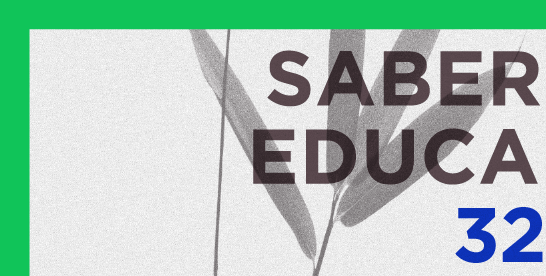The Catholic Moral and Religious Education in Cape Verde and teachers' perception of their relevance
DOI:
https://doi.org/10.25767/se.v32i1.30129Keywords:
Catholic Moral and Religious EducationAbstract
In order to restore to religious education, the important place in public schools, a new analysis of the sociopolitical situation was made and the Agreement between the Holy See and the State of Cape Verde on the Legal Status of the Catholic Church in Cape Verde was signed on June 10, 2013 (BO No. 68, I Series of December 16), called Concordat. This Agreement established, among other measures, the possibility of introduction into public education not higher of the discipline Catholic Moral and Religious Education (EMRC). Thus, after some advances and setbacks in discussions with government authorities, initiated in 2015, the Government, at the end of 2017, accepted the proposal presented by the Catholic Church to implement the EMRC discipline in 13 (thirteen) public schools on the islands of Santiago, Fogo, São Vicente, and Santo Antão. This study aims to historically contextualize the discipline of EMRC in Cape Verde, analyze elements of its program and its implementation and to understand teachers about the relevance of the EMRC discipline, using documentary analysis and questionnaire survey as methodology. The results of this study indicate that EMRC is a necessary discipline, legal, endorsed with moral strength and open to the values of justice, solidarity, and peace, thus requiring teachers with human personality, teaching personality, and believing personality.
References
Cabo Verde (2010). Constituição da República de Cabo Verde. Lei constitucional nº 1/VII/2010. 2ª Revisão Ordinária. BO n° 17/2010, I Série. Retificado pelo BO nº 28 de 26 de julho de 2010, I Serie. Praia
Cabo Verde (2013). Acordo assinado entre o Estado de Cabo Verde e a Santa Sé. Praia. Boletim Oficial, nº 8 de 18 de dezembro de 2013.
Cabo Verde (2014). Lei nº 64 VIII/2014 de 16 de maio que estabelece o Regime Jurídico da Liberdade de Religião e Culto em Cabo Verde. Praia.
Carvalho, C. & Pereira, J. A. P. (2005) A formação de professores vocacionada para a Educação Moral e Religiosa Católica. In Fórum de Educação Moral e Religiosa Católica, 89-104. SNEC.
Carvalho, M. (2019). O passado hoje. História do Liceu em Cabo Verde de 1860 a 1975: Praia, Ribeira Brava, Mindelo. Livraria Pedro Cardoso.
Concilio Vaticano II. Declaração Gravissimum Educationis sobre a Educação Cristã.https://www.vatican.va/archive/hist_councils/ii_vatican_council/documents/vat-ii_decl_19651028_gravissimum-educationis_po.html
Conferência Episcopal Portuguesa – CEP (2006). Educação Moral e Religiosa Católica – Um valioso contributo para a formação da personalidade. Conferência Episcopal Portuguesa, Lisboa.
Delgado, P. (2017). Implementação da disciplina Educação e Moral Religiosa Católica no sistema de ensino e o processo de secularização em Cabo Verde. Dissertação de Mestrado em Educação, UFSC.
Diocese de Santiago (2022). Relatório da implementação da disciplina EMRC nas escolas públicas em Cabo Verde. Anos Letivos: 2019/2020, 2020/2021 e 2021/2022. Praia.
Furtado, A. & Ildo, F. (2019). Nota Pastoral dos Bispos de Cabo Verde sobre a introdução da disciplina de EMRC no ensino em Cabo Verde, Praia.
Martins, J. (2005). Enquadramento histórico/legal do Ensino Religioso nas Escolas públicas. In Fórum de Educação Moral e Religiosa Católica, pp. 61-82. SNEC.
Nunes, T. S. (2005) O Perfil do Professor de Educação Moral e Religiosa Católica. In Fórum de Educação Moral e Religiosa Católica: Pessoa, Cultura e Fé, pp. 83-88. SNEC.
Secretariado Nacional de Educação Cristã – SNEC (2001). EMRC: um contributo essencial aos desafios educativos. In I Congresso de Professores de EMRC. Universidade Católica Portuguesa. Faculdade de Teologia.
Varela, F. (2018). Concepções, trajetórias e práxis educativas. Um estudo sobre o programa de formação de educadores de adultos em Cabo Verde. Tese de Doutoramento, Universidade Aberta. Lisboa, Portugal.
Downloads
Published
How to Cite
Issue
Section
License
Copyright (c) 2023 Florenço Mendes Varela

This work is licensed under a Creative Commons Attribution-NonCommercial-ShareAlike 4.0 International License.
- The opinions expressed by the authors are their exclusive responsibility.
- The journal reserves the right to make the original, normative changes, spelling and grammar, in order to maintain the standard language of worship, while respecting the style of the authors.
- Authors retain copyright and grant the journal right of first publication with the work simultaneously licensed under a Creative Commons Attribution License (BY-NC-SA 4.0) that allows others to share the work with an acknowledgement of the work's authorship and initial publication in this journal.
- Authors are able to enter into separate, additional contractual arrangements for the non-exclusive distribution of the journal's published version of the work (e.g., post it to an institutional repository or publish it in a book), with an acknowledgement of its initial publication in this journal.
- Authors are permitted and encouraged to post their work online (e.g., in institutional repositories or on their website) prior to and during the submission process, as it can lead to productive exchanges, as well as earlier and greater citation of published work (See The Effect of Open Access).
PRIVACY STATEMENT
The names and email addresses entered in this journal site will be used exclusively for the stated purposes of this journal and will not be made available for any other purpose or to any other party.






